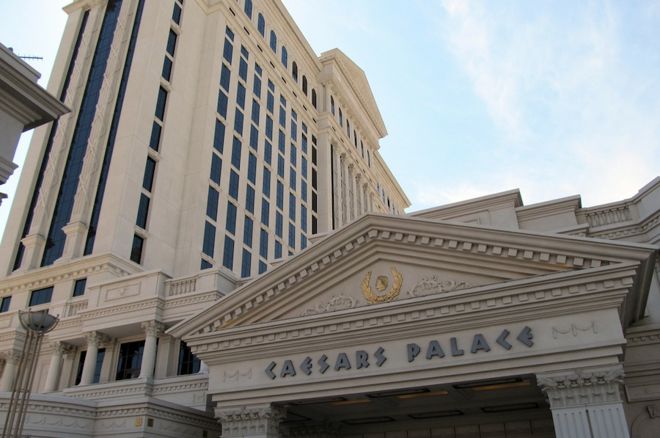

In this week's installment of Inside Gaming, some excellent news for Caesars Entertainment Corp. (finally) during its ongoing battles with creditors in regards to the bankruptcy filing of its largest operating division, IGT agrees to pay a hefty penalty imposed by the SEC, and a court ruling in Ohio halts a challenge to the constitutionality of the state's casinos.
Caesars Bond Hits Three-Year High Amid Bankruptcy Battles
For the primary time in a protracted while, there has been positive news amid Caesars Entertainment Corp.'s ongoing efforts to regulate the Chapter 11 bankruptcy filing of its largest operating division, Caesars Entertainment Operating Company, and resulting lawsuits from numerous creditors.
Earlier this week Bloomberg Markets reported that a Caesars bond "rose to the top level in three years," as a result "significant progress" having been made by the corporate "toward an agreement that may lift its operating unit out of bankruptcy."
According to Trace, the bond-price reporting system of the Financial Industry Regulatory Authority, Caesars' $760.4 million worth of 10 percent second-lien notes maturing 2018 increased to the purpose of trading 62.25 cents at the dollar, the top level for the notes since April 2013.
In statement issued Monday, Caesars "said discussions are continuing with major creditors and the corporate is optimistic about reaching an agreement" that may enable them to finish their court battles.
In the spring of 2014, the parent company restructured by separating into three separate divisions, a move then characterized as a part of an effort to bypass declaring bankruptcy while managing its industry-leading $18 billion-plus debt.
The largest and most debt-ridden of the 3 new divisions — Caesars Entertainment Operating Co. — includes greater than 40 properties akin to Caesars Palace, Caesars Atlantic City, and others. (THE OPPOSITE two divisions are Caesars Entertainment Resorts Properties and Caesars Growth Properties.)
But in January 2015 came the Chapter 11 bankruptcy filing for that largest division, the CEOC, and subsequently several creditors filed lawsuits claiming the sooner restructuring have been unfairly designed to circumvent paying debts they were owed.
In March 2015 Caesars received a scolding from the Nevada Gaming Commission with the NGC chairman characterizing the bankruptcy case as "a humiliation to Caesars and the state of Nevada." Then in June 2015 efforts by Caesars to prevent the lawsuits while details of the bankruptcy filing may well be ironed out were nixed by U.S. Bankruptcy Judge Benjamin Goldgar, and the court battles continued. By March of this year a court-ordered examiner's report determined CEC and its private equity backers, Apollo Global Management and TPG Capital, may well be accountable for as much as $5.1 billion in damages.
Bloomberg Markets explains how the second-lien debt holders — a gaggle including Appaloosa Management — "was the hardest holdouts within the restructuring talks" for the reason that CEOC's bankruptcy filing. "The creditors has been seeking a better payout after the Las Vegas-based Caesars originally offered about $4 billion toward the reorganization."
For now, the negotiations continue.
For more at the past, present, and way forward for Caesars' bankruptcy battles, visit Bloomberg Markets.
IGT Agrees to SEC's Half-Million Dollar Penalty for Whistleblower Firing
As we previewed per week ago, the worldwide Gaming Expo played out this week in Las Vegas, at which International Game Technology (IGT) was one of the prominent exhibitors. Because the Expo concluded, so, too, did IGT settle another matter by agreeing to pay a $500,000 penalty given them by the us Securities and Exchange Commission.
The gaming-casino company received the penalty "for firing an employee with several years of positive performance reviews because he reported to senior management and the SEC that the company's financial statements could be distorted," because the SEC explained in its press release announcing IGT's agreement to pay.
The employee were far from assignments immediately after having made the report, then fired from the corporate three months later.
"Strong enforcement of the anti-retaliation protections is important to the success of the SEC's whisteblower program," explained the Commission. "This whisteblower noticed something that he felt might result in inaccurate financial reporting and law violations, and he was wrongfully targeted for doing the fitting thing and reporting it."
While agreeing to pay the fine, IGT neither admits nor denies the costs suggested by the SEC's findings. The company's own internal investigations in regards to the employee's allegations "determined its reported financial statements contained no misstatements."
Learn more in regards to the penalty and a few additional historical context within the SEC's release.
Judge Dismisses Legal Challenge to Ohio Casinos
For the last five years a legal case between an individual company and several other Ohio state officials was playing out by which the federal constitutionality of the state's 2009 amendment to permit casinos have been challenged. Finally this week the case — and the challenge — reached a conclusion after being dismissed by Judge Chris Brown of the Franklin County Court of Common Pleas, reports cleveland.com.
The Akron-based company Ohio Roundtable sued the state Lottery Commission and Casino Commission in addition to Governor John Kasich and the state's Tax Commissioner due to the fact the 2009 amendment was unconstitutional and unfairly let the state decide via regulations and restrictions upon who may well be casino operators within the state.
But Judge Brown decided otherwise, concluding that "the State has a sound interest in regulating casino gambling." In his ruling, Brown described gambling as "a vice that can be limited, restricted, or banned by the State in its entirety, to be able to preserve the public's health and welfare."
The original suit were brought by 11 different individuals, and were dismissed by a lower Franklin County court, and then it an appeal was made and the case was taken to the Ohio Supreme Court. There, too, the case was decided to not have any standing, although some of the plaintiffs — Frederick Kinsey — was allowed to pursue his case further within the Franklin County Court of Common Pleas where Judge Brown ruled against it this week.
Speaking in regards to the dismissal of the case, the chair of the Ohio State Bar Association Gaming and Liquor Law Committe John H. Oberle stated the ruling "provides legal certainty to Ohio's four casinos, and substantiates the legal structure of the Ohio casino law approved by voters, the overall Assembly, and the Ohio Casino Control Commission if this situation isn't appealed."
It will also be appealed, of course, although no indication was made as yet whether an appeal is forthcoming.
Read more about how Judge Brown characterizes the state's relationship to gambling and a duplicate of all of the ruling at cleveland.com.
Photo: "Caesars Palace Exterior," daryl mitchell. CC BY-SA 2.0.
PokerNews.com is the world's leading poker website. Among other things, visitors will discover a daily dose of articles with the newest poker news, live reporting from tournaments, exclusive videos, podcasts and such a lot more.
PokerStars is the biggest online poker room offering the most important amount of poker games and different game variations including Texas Hold'em, Omaha and other popular poker games. By joining PokerStars you'll easily learn all of the poker rules and poker strategy by playing free poker games. Join PokerStars and luxuriate in top of the range online poker.

Read More... [Source: PokerNews]
No comments:
Post a Comment